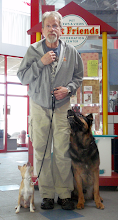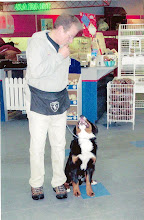Considering a New Addition?
How to Choose the Right Pet for your Family
If you are thinking about opening your hearts and homes to a new family member, it's important to choose the right pet for your family and lifestyle. Remember, the decision to get a pet should always be a family decision, not just one made by the kids or mom and dad. After all, everyone is going to play a part in raising and caring for this new family member!
Before choosing your pet, be sure there are no restrictions in your community or housing area. Check pet policies in contracts or leases, and consider size limitations. Also, keep in mind that owning a pet is going to mean an increase in household expenses.
Deciding what type of pet to get involves answering a lot of questions, including:
What age are the children? The ASPCA offers specific guidelines when choosing pets for homes with children. It is generally recommended that children under 10 be introduced to small pets such as guinea pigs, mice or fish. Children over 10 can help with the responsibilities of caring for a dog, cat or rabbit, and even participate in training classes. As the children enter their mid to late teens, however, keep in mind that they'll be preoccupied with their own lives, and won't be willing to devote as much time to Fluffy.
Does anyone suffer from allergies? If so, your choices may be limited. Check with a doctor and/or veterinarian.
How much time is spent at home? Puppies and kittens need a lot of human attention, especially for house training and socialization, and learning what not to do. Even older pets need time to learn what will be expected of them .
How involved will the pet be in family activities? If your family tends to lead an active lifestyle, you'll want to consider getting a hardy dog who enjoys the outdoors. These pets must be well-behaved, too, which involves a commitment to ongoing obedience training.
Are there other pets in the home? Resident pets generally enjoy the company of another pet, provided they're compatible and introduced in appropriate manners. Bringing a kitten into a household of 3 dogs may not be the best idea, but that kitten may enjoy being the friend of an older feline.







